Are you looking for a specific topic? Use the search function at the top right.
Sind Sie auf der Suche nach einem bestimmten Thema? Nutzen Sie die Suchfunktion oben rechts.
Wenn Sie unser Magazin kostenfrei abonnieren möchten, schicken Sie eine Mail mit dem Betreff FELD und Ihren Kontaktdaten an: feld@zalf.de.
Sie möchten die neuen FELD-Ausgaben lieber online nachlesen?
Dann registrieren Sie sich für den Newsletter auf unserem Online-Blog zum Magazin: www.quer-feld-ein.blog
FELD 01/2019
- Text
- Heat
- Water
- Nature
- Drought
- Landscape
- Fields
- Climate
- Zalf
- Amphibians
- Tanzania
- Agriculture
- Agricultural
Climate change Climate
Climate change Climate change LESS MAIZE, MORE WHEAT The results of the simulations make it clear: “It is above all drought stress in maize cultivation that leads to high yield losses”, says Heidi Webber. For the future, the models also predict declining maize yields with increasing demands for water. However, this is not the case to this extent for winter wheat. Here the team was not able to explain the yield fluctuations with drought. It is evidently less sensitive to drought stress than maize. Winter wheat may benefit from its sowing date. While summer wheat is sown in spring, winter wheat is sown in fall. If temperatures are mild, the seeds begin to germinate. During winter, the young plants barely suffer from drought stress, can form strong roots and in the warmer, drier season can also tap deeper water reserves. On the other hand, things can soon become critical for maize seedlings if too little rain falls after sowing in spring. “According to the model results, winter wheat yields could even rise”, explains Webber, explaining this with rising concentrations of CO2. “CO2 stimulates the growth of wheat and partially compensates for the negative effects of stress.” Thanks to their metabolism, cereals seem to be well prepared for climate change, at least in most European growing regions. However, this characteristic does not help in years of severe drought such as 2018. “In extremely dry years, the yields of wheat also decline”, Webber emphasizes. DROUGHT IS THE GREATEST RISK In other words, drought is the greatest risk factor in European agriculture. How can farmers react? “There is no single answer”, says Heidi Webber, “because conditions vary from place to place.” To prevent drought years like 2018 from resulting in massive crop failures, agricultural actors have to react on many levels. In future, they will have to give more thought to irrigation, alternative methods of cultivation and approaches to breeding, which will above all increase the drought resistance of the plants. Too hot and too dry: In the summer of 2018 there were crop losses of up to 50 percent in some regions of Germany. An important strategy for adapting agriculture to climate change is breeding more resistant crops. www.zalf.de/feld/en 32 33
- Seite 1 und 2: MAGAZINE OF THE LEIBNIZ CENTRE FOR
- Seite 4: TITLE STORY BAGS FULL OF HOPE FOR T
- Seite 8: Tanzania Tanzania in the Tanzanian
- Seite 12: THE FIELD AS AN AMPHIBIAN THEATRE 1
- Seite 16: Amphibians Amphibians treated in th
- Seite 20: Tanzania Tanzania DO IT YOURSELF St
- Seite 24: KETTLE HOLES KETTLE HOLES Geographe
- Seite 28: KETTLE HOLES KETTLE HOLES IMPORTANC
- Seite 32: Climate change PLANTS AT THE LIMIT
- Seite 38: The Leibniz Centre for Agricultural
Unangemessen
Laden...
Magazin per E-Mail verschicken
Laden...
Einbetten
Laden...
FELD (dt.)
Neu im querFELDein-Podcast
Would you prefer to read the new FELD issues online?
Then register for the newsletter on our online blog: www.quer-feld-ein.blog

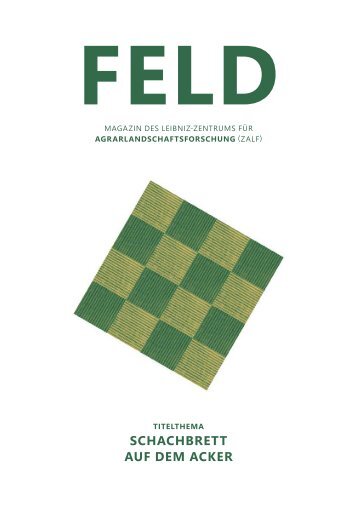
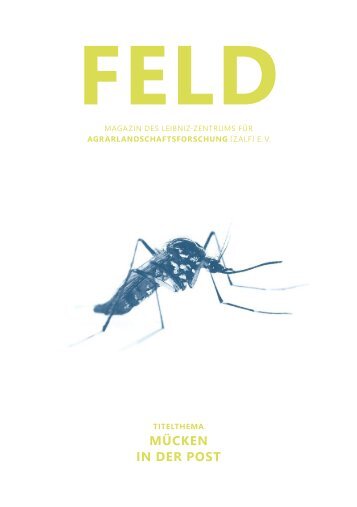
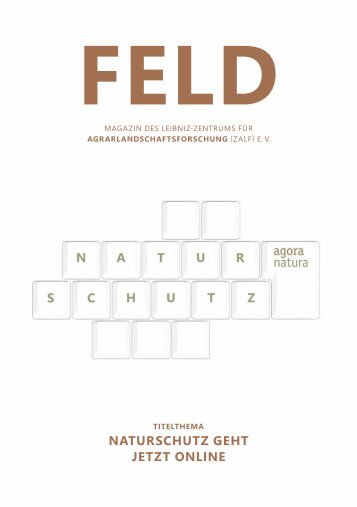
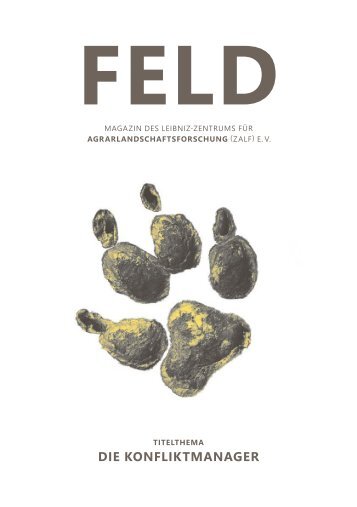
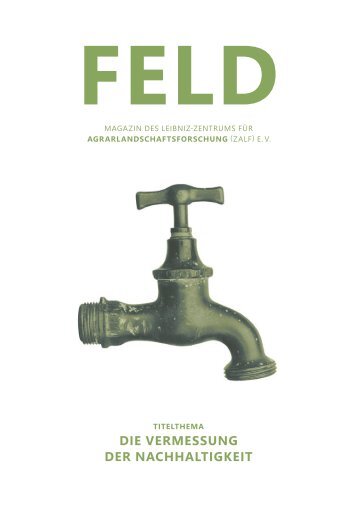
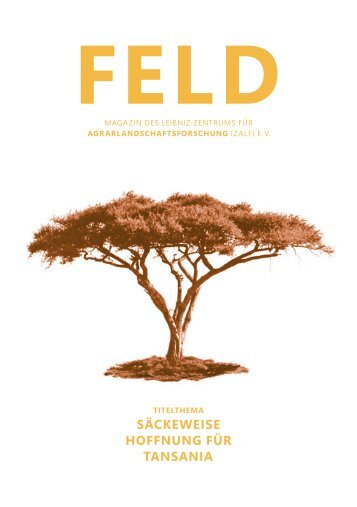
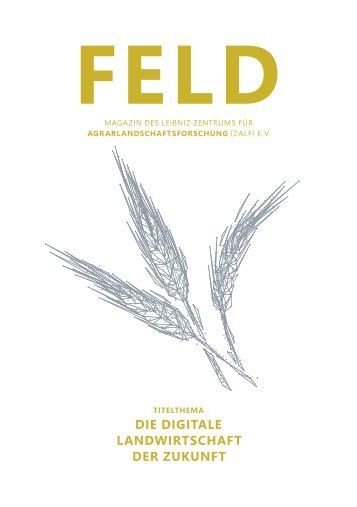
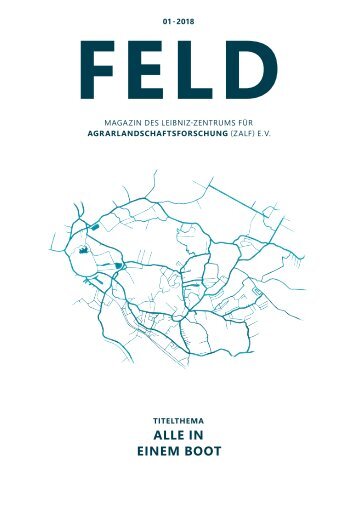
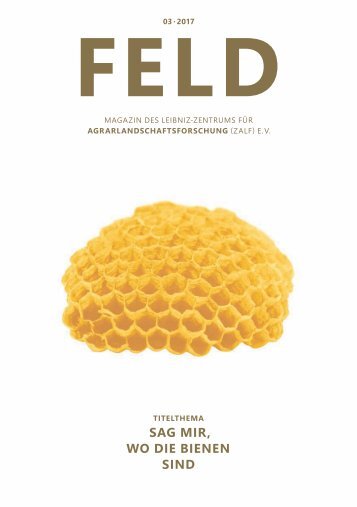
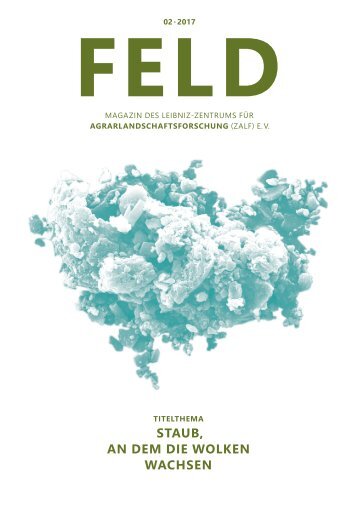

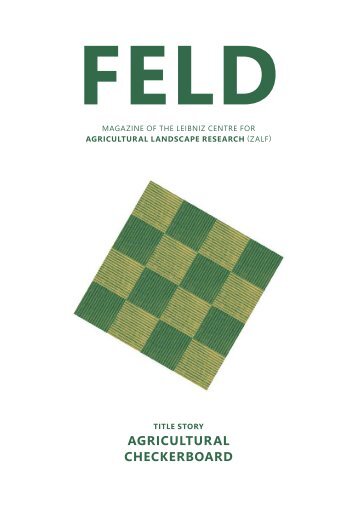

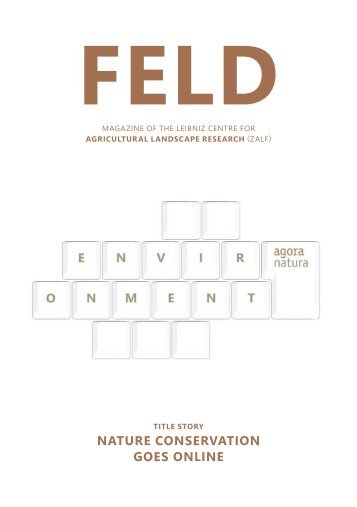








FOLLOW US
Twitter
Youtube
Instagram
LinkedIn